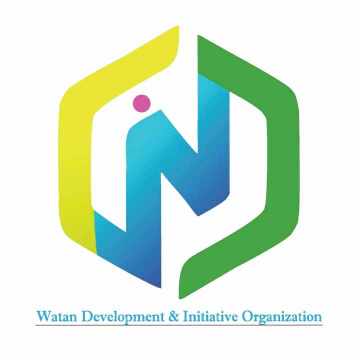Background:
HASEL consortium is implementing a 36-month funded project in Ghazni, Zabul, Paktika, Herat, Helmand, and Kandahar provinces to support households and communities to improve their livelihoods and resilience sustainably. The project focuses on community-led solutions that will improve watershed and disaster risk management (DRM), increase farmers' access to the markets, farmers' capacity building, Agricultural inputs distribution, and savings loan groups. Through this project, the vulnerable communities will have strengthened resilience to crises and disasters such as droughts, floods, food security, and market shocks, and will enhance their economic stability.
The consortium needs to conduct a series of assessments and research activities before implementing the project. The results of these assessments will serve as essential inputs, ensuring that the action interventions are contextually relevant, harmonized among partners, and tailored to meet the needs of vulnerable groups. CRS is going to lead the Climate Vulnerability Assessment for the consortium. CRS is seeking to hire a qualified Technical Advisor to manage and lead the VCA for the entire target area under the EU project, with the support of PIN, MC, and AWEC in the target areas, and drafting the assessment result report to be shared with the donor.
Project Summary:
CRS is implementing a 36-month EU-funded project in three districts (Injil, Gozara, and Koshk Robat Sangi districts) of Herat province to support households and communities to improve their livelihoods and resilience sustainably. The project focuses on community-led solutions that will improve watershed and disaster risk management (DRM), increase farmers' access to the markets, farmers' capacity building, Agricultural inputs distribution, and savings loan groups. Through this project, 20 vulnerable communities in the Herat province will have strengthened resilience to crises and disasters such as droughts, flooding, food security, and market shocks, and will enhance their economic stability. CRS will also carry out some assessments and baseline surveys under this project.
Job Summary:
The purpose of a climate vulnerability assessment is to identify and understand the regions, populations, and sectors most at risk from the impacts of climate change, such as droughts, floods, and rising temperatures. Given Afghanistan’s fragile environmental conditions, dependence on agriculture, and limited adaptive capacity, such an assessment is essential for informing national and local planning efforts. This assessment should offer and valuable opportunity to develop strategies for the implementation of the HASEL project, considering the climate vulnerabilities of the target communities under the HASEL project.
The consortium intends to use the findings of this assessment to influence and engage a wide group of stakeholders, including donors, in conversations about the importance of climate change impacts to the livelihood of people in Afghanistan. Also, this assessment will help the consortium in the target area under the project to design their DRM activities and intervention plan more effectively for the upcoming three years and future planning. and management integrated into multisectoral and diverse programming and provided concrete evidence for the investment needed by donors to ultimately strengthen the sustainability of the programming they fund. This assessment will also contribute to the consortium learning about community climate vulnerabilities, Risks, and coping mechanisms, and will offer a hypothesis and recommendations to be applied throughout the project planning, implementation, and closing-out phases for the target areas. With increased donor interest in such evidence, this assessment will also position the consortium competitively to design new projects and obtain funding that integrates the findings of this assessment.
This assessment will be led by CRS with the support of PIN, MC, and AWEC in Ghazni (Jaghori and Gelan districts), Zabul (Arghandab and Daychopan districts), Paktika (Barmal and Urgon districts), Herat (Injil, Guzara, and Koshk Robat Sangi), Helmand (Nad Ali district), and Kandahar (Daman and Dand districts and Kandahar City).
Roles and Key Responsibilities:
- Desk review and consultation with key stakeholders and submit an inception report clarifying understanding of ToRs and work plan with a timeframe for key deliverables, methodology, and instruments/tools for data collection in the target areas.
- Lead the Climate risk and vulnerability assessment (including consultations, field work, analysis, etc.) for the consortium
- Orient the assessment field staff of all the consortium members on the tools and data collection and provide technical guidance during the assessment in including daily debrief.
- Preparation of the draft climate risk and vulnerability assessment report and action plan for the climate resilient action plan for the target areas according to the project proposal.
- Finalization of the draft climate risk and vulnerability assessment report and strategy/action plan for climate resilient and DRR risk management and mitigation, considering feedback from stakeholders and consortium members.
- Review the CVA ToR and follow it’s all its technical scales and scopes
- Initial Design Workshop: Technical Advisor in consultation with consortium partners (e.g. design of assessment questions, joint mapping of information needs, identification of existing data, and dissemination strategy)
- Desk Review: Consultants conduct A desk review to analyze existing literature, policies, and data related to climate risks and vulnerabilities in Afghanistan, particularly in the project target areas. This will provide a foundational understanding and guided the design of primary data tools.
- Lead the Primary Data Collection: In collaboration with consortium members Afghanistan team Technical Advisor lead the primary data collection, develop the tolls for data collection, neuromotor orientation on the tolls and assessment questions, daily debrief with the data collection team to make sure the assessment is following the correct direction and achieving the objectives of assessment. Since the hazard and risk might be different between locations of the project. So, the assessment suggests two steps to data collection:
- First steps:
- Hazard mapping
- Risk assessment
- Second:
- Livelihood sensitivity
- Adaptive capacity
- Data Analysis and Mapping: The Technical Advisor will conduct qualitative analysis of the primary data collected; the collected data will be analyzed using a framework based on exposure, sensitivity, and adaptive capacity.
- Draft Report Development: The Technical Advisor will prepare a draft report by summarizing the key findings, vulnerability maps, and initial adaptation recommendations. It integrated both desk and field data into a coherent narrative for stakeholder review.
- Data Synthesis Workshop: With consortium partners, data was reviewed and validated. The draft findings were discussed during a synthesis workshop by the consultant.
- Final Report: The Technical Advisor will draft the CVA assessment result final report and share it with CRS and the consortium coordinator
- Dissemination of Key Findings: The final report and key findings will be disseminated through the consortium partners. Including smart climate strategies for the project implementation
Validation of Findings
Following preliminary analysis, the Technical Advisor will hold a validation workshop with members of the HASEL consortium, as well as the consortium members' local and global Technical Advisors for landscape restoration. The Technical Advisor will adjust the findings and conclusions as appropriate based on this workshop and may propose avenues for additional data collection to fill in information gaps that arise.





